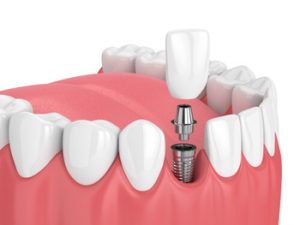Considering dental implants? It’s essential to look beyond the initial allure of destinations like Bangkok, which is known for its historic attractions and tempting cuisine. While dental implants are a popular procedure there, the importance of quality healthcare should not be underestimated. When considering dental implants, it’s crucial to evaluate certain key factors to ensure your health and satisfaction with the procedure.
What Are Dental Implants?
Dental implants serve as synthetic foundations embedded in the jawbone, designed to support various dental prosthetics. They are available in different forms, such as endosteal, the most common type, which is inserted directly into the bone, and subperiosteal, positioned on top of the bone but beneath the gums.
Why Should You Choose Australia Over Bangkok for Dental Implants?
Regulatory Standards and Quality Assurance
Advanced Technology in Implant Dentistry
Australia is renowned for its state-of-the-art medical facilities and the latest advancements in implant dentistry. Australian dental clinics are often equipped with cutting-edge technology for diagnostics and treatment, such as 3D imaging and computer-guided implant surgery. These technologies enhance the precision of dental implant procedures, improving outcomes and reducing recovery times.
Training and Expertise of Dental Professionals
The training and expertise of dental professionals in Australia are unmatched due to the comprehensive education and rigorous training required to qualify as a dental practitioner. Australian dentists providing dental implant treatments often have additional qualifications in implantology and are required to participate in ongoing professional development.
Communication and Legal Protections
Receiving dental treatment in Australia offers the advantage of clear communication, as English is the primary language spoken. This ensures that all aspects of the dental implant treatments are discussed and understood clearly, reducing the risk of miscommunication about the treatment process or aftercare. Additionally, Australian laws provide strong consumer protections, which can be reassuring, especially in cases where something might go wrong.
Follow-up Care and Accountability
Follow-up care is a vital aspect of the success of dental implant treatments. Australian dental clinics generally provide comprehensive post-treatment care and are easily accessible for ongoing check-ups and any necessary adjustments. The accountability held by dental professionals in Australia also ensures that patients receive effective and timely responses to any complications or concerns. In Bangkok, the practicality of returning for follow-ups or addressing post-treatment issues can be complicated and costly for those who live abroad.
Overall Healthcare Experience
Australia offers a healthcare experience that is not just about receiving dental care but also about ensuring a holistic approach to health. The Australian healthcare system is one of the most respected in the world, known for its effectiveness and patient-centred approach. Choosing to undergo implant dentistry in Australia ensures that the entire health of the patient is considered in a system that supports and integrates various aspects of healthcare management.
While Bangkok might offer cost-effective solutions for dental care, the advantages of undergoing dental implant treatments in Australia—ranging from high standards of care, advanced technology, skilled professionals, better communication, legal protections, and comprehensive follow-up care—make it a preferable choice for many. These factors not only ensure a higher success rate for the treatment but also provide peace of mind and a better overall healthcare experience.
What Are the Steps Taken During Dental Implant Placement?
Initial Consultation and Planning
The journey towards restoring your smile with dental implants begins with an initial consultation. During this first step, the dentist assesses the overall health of your teeth and gums, paying particular attention to areas affected by tooth loss. This evaluation often includes X-rays or 3D images to examine the jaw bone and determine the extent of bone loss, which can influence the approach to the dental implant procedure. The goal is to develop a tailored dental treatment plan that addresses your specific needs.
Preparatory Procedures
If bone loss in the jaw is significant, preparatory procedures such as dental bone grafting may be necessary before placing the dental implant. Bone grafting is crucial as it ensures the dental implant posts have a solid foundation. This step is essential for patients who have experienced jaw bone deterioration, providing the necessary support for the longevity of the dental implants.
Dental Implant Placement
Once the jaw bone is deemed ready, the actual placement of the dental implant posts occurs. This surgical, dental procedure involves making a small incision in the gum to expose the bone. The dental implant—usually made of titanium—is then carefully inserted into the jaw bone. The primary aim here is to replace missing teeth roots with these implants, providing a sturdy base for the next stages of restoration.
Healing and Osseointegration
After the dental implant is placed, a period of healing, known as osseointegration, begins. During this phase, the dental implant gradually fuses with the jaw bone, a process that can take several months. This integration is critical as it provides the strength and stability needed to support dental prosthetics like implant dentures or dental implant bridges. Patients are usually given temporary teeth during this period to aid functionality and appearance.
Abutment Placement
After the dental implant has fully fused with the jawbone, the next phase includes placing the abutment. Acting as a link between the implant and the final prosthetic tooth, this procedure is conducted under local anaesthesia. It involves reopening the gum tissue to expose the implant and affixing the abutment.
Attaching the Prosthetic Teeth
The final step in the dental implant procedure involves attaching the prosthetic teeth. Depending on the number of missing teeth, this could be a single crown, a dental implant bridge, or even implant dentures. These prosthetics are designed to match the natural colour and shape of your existing teeth, blending seamlessly with your smile.
Precision and careful handling of each phase are crucial to achieving the overall success of the dental implant treatment. Each stage is meticulously planned and executed to replace missing teeth effectively, restore functionality, and maintain the aesthetics of the patient’s smile.
In What Ways Are Dental Implants Advantageous?
Restoration of Full Dental Functionality
Dental implants are recognised for their ability to fully restore the functionality of teeth. Unlike alternative treatments, which may only offer superficial or temporary solutions, implants integrate with the jawbone, creating a stable base that replicates the natural root system of a tooth. This stability allows for normal chewing and biting, similar to that of natural teeth, enabling individuals to enjoy a varied diet without restrictions. This is particularly important for overall nutrition and health, as it allows for the consumption of tougher foods that may be off-limits with other dental prostheses.
Preservation of Jawbone and Facial Structure
One substantial advantage of dental implants is their role in preserving and protecting the jawbone. Following the loss of a tooth, the jawbone in the vacant space can begin to deteriorate due to lack of stimulation. Dental implants imitate the stimulation of a natural tooth root, promoting bone growth and preventing bone loss. This not only maintains jaw strength and health but also supports the facial structure, preventing the sunken appearance often linked with ageing and tooth loss.
Long-term Oral Health Benefits
Implants are beneficial for long-term oral health. By replacing a missing tooth, teeth implants prevent the remaining teeth from drifting out of position, a common occurrence that can lead to misalignment and other dental issues. Furthermore, unlike bridges and dentures, dental implants do not require the alteration or filing of adjacent teeth, which helps preserve more of the individual’s natural tooth structure.
Superior Aesthetic Outcomes
Dental implants provide significant aesthetic benefits. They are designed to look and feel like natural teeth, and the crowns mounted on them are tailored to match the shape and shade of the surrounding teeth. This results in a seamless appearance that can enhance an individual’s smile and boost self-confidence. The aesthetic quality of dental implants not only improves the visual appearance but also promotes a natural feel in the mouth, contributing to a more natural smile and facial expressions.
Enhancing Speech and Communication
Replacing a missing tooth with a dental implant can also improve speech. Missing teeth can create gaps that interfere with normal airflow and sound production, leading to speech difficulties. Dental implants fill these gaps and allow air to flow naturally, enhancing the clarity of speech. This benefit is particularly notable compared to dentures, which can sometimes slip and cause mumbling or slurring.
These comprehensive benefits highlight why dental implants are a highly regarded solution for replacing missing teeth. They offer not just cosmetic enhancement but also significant improvements in dental health and overall quality of life.
What Measures Should One Follow to Preserve the Health of Their Dental Implants?
Regular and Thorough Oral Hygiene
Routine Dental Check-ups
Regular check-ups with a dental professional are vital for ensuring the health of dental implants. These visits allow dentists to monitor the implants and the surrounding gum and bone health. Professional cleaning sessions help remove plaque and tartar that regular brushing and flossing might miss, especially in the hard-to-reach areas around the implants. Dentists also check for any signs of gum disease or implant instability and can address these issues early on.
Use of Interdental Brushes
In addition to regular flossing, using interdental brushes can provide an extra level of cleanliness around dental implants. These brushes are created to clean between the teeth and around the implants effectively. They come in various sizes to fit different gaps and should be used gently to avoid damaging the gums or the implant surface.
Avoiding Harmful Habits
Specific behaviours can undermine the durability of dental implants. Smoking, in particular, significantly enhances the risk of implant failure by impairing gum blood flow, resulting in delayed healing and heightened susceptibility to infections. Similarly, chewing hard objects like ice, pens, or hard candy can exert excessive pressure on implants, potentially leading to damage. Patients should avoid these habits to protect their implants.
Proper Cleaning Techniques
It is important for implant patients to learn and use the correct techniques for cleaning around their implants. This involves gentle circular motions with the brush and careful flossing techniques that do not disturb the soft tissue around the implants. Dental professionals often provide demonstrations on how to effectively clean around implants during regular visits.
Managing Bruxism
Patients who clench their teeth (a condition known as bruxism) may put additional stress on their implants, which can lead to complications. If bruxism is a concern, it’s important to address this with a dentist who may recommend wearing a custom-made night guard. This guard helps distribute the force of biting and grinding evenly, thus protecting the implants from undue stress.
Immediate Attention to Discomfort or Changes
Any signs of discomfort, increased mobility of the implant, or changes in the way the implant feels should prompt an immediate consultation with a dental professional. Early detection of issues such as infection or loosening of the implant can make a significant difference in the possible treatments and outcomes.
By adhering to these care strategies, patients can significantly enhance the success and lifespan of their dental implants, maintaining both their functionality and aesthetic appearance. Regular maintenance combined with professional oversight forms the cornerstone of effective implant care.
How Should One Modify Their Eating Habits After Dental Implant Surgery?
After undergoing dental implant surgery, it’s important to adjust your eating habits to ensure the healing process is smooth and uncomplicated. Initially, sticking to a diet of soft foods is crucial. During the first few days post-surgery, opt for liquids and very soft foods like soups, yoghurt, smoothies, and mashed vegetables. These foods will help avoid putting pressure on the new implants and the surgical site.
As the healing progresses, you can gradually introduce more solid foods, but it’s wise to continue avoiding anything too hard, sticky, or chewy. Foods such as hard fruits, crusty bread, and tough meats should be avoided until your dentist confirms that the tooth implant has integrated successfully with the jawbone and is capable of handling more stress.
Additionally, maintaining a balanced diet is essential. Ensure you’re getting a sufficient intake of vitamins and minerals to support bone health and wound healing. Vitamins A and C are particularly important for healing and the health of gums.
It’s also wise to refrain from consuming very hot or cold foods and beverages, as their extreme temperatures can potentially irritate the implant area.
Steering clear of spicy foods and anything with seeds or small, hard particles that could get lodged in the implant area is also recommended to prevent irritation or infection.
Make a Knowledgeable Choice for Your Dental Health
Choosing us means investing in reliability and excellence, ensuring that your dental requirements are fulfilled with the utmost care. For detailed insights into how we can enhance your dental health and for bespoke advice tailored to your needs, we encourage you to contact Casey Dentists, Aitkenvale (Townsville) Queensland, 4814, at 07 4801 7035.
Let’s discuss how our local solutions can provide you with both exceptional quality and peace of mind. Your journey to a flawless smile is just a phone call away!
Note: Any surgical or invasive procedure carries risks. Before proceeding, you should seek a second opinion from an appropriately qualified health practitioner.
References:
Implants
https://www.dentalhealth.org/dental-implants
Dental Implants: What You Need To Know
https://www.forbes.com/health/body/dental-implants-guide/



